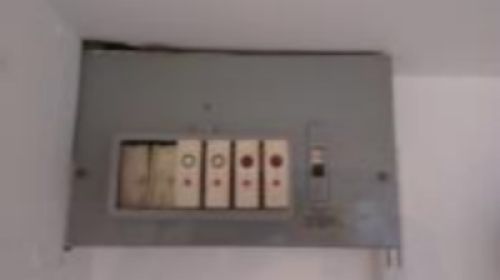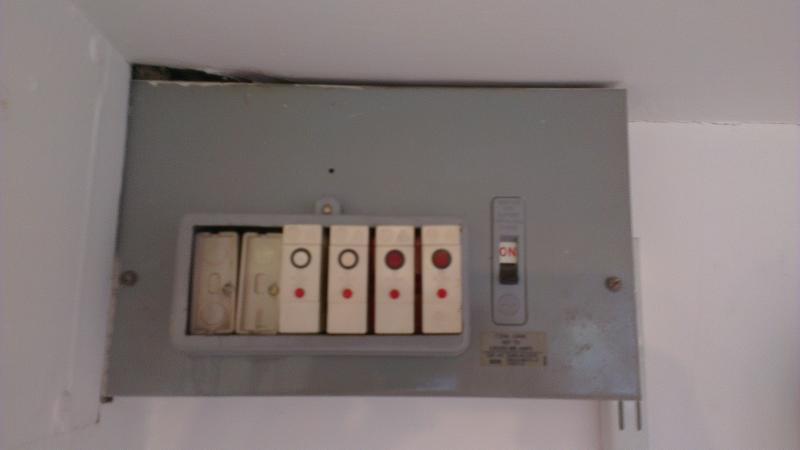Hi my wife is renting an office with a friend and there is a tiny kitchen area which has one of those hot water tanks over the sink fed from an adjacent spur. There is also a socket to the side near the floor and a light switch on the wall to the right, basically a few electrical items close to the sink, see pictures


This is the fuseboard not sure what make that is, anybody know?

What I would like to know is are these items ok being so near the sink and shouldn't there be some sort of RCD type protection involved?
Also what would you suggest as cheapest/simplest solution if anything needs doing as my wife will probably end up paying for it and is not to bothered how it will look within reason?
Also side question, my images seem so small on here whereas they are big on my PC, how can I get them so that they look bigger on here?
Any help advice appreciated.


This is the fuseboard not sure what make that is, anybody know?

What I would like to know is are these items ok being so near the sink and shouldn't there be some sort of RCD type protection involved?
Also what would you suggest as cheapest/simplest solution if anything needs doing as my wife will probably end up paying for it and is not to bothered how it will look within reason?
Also side question, my images seem so small on here whereas they are big on my PC, how can I get them so that they look bigger on here?
Any help advice appreciated.




